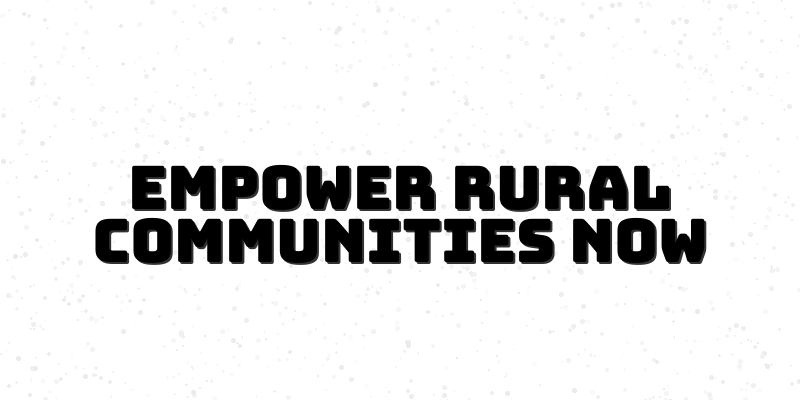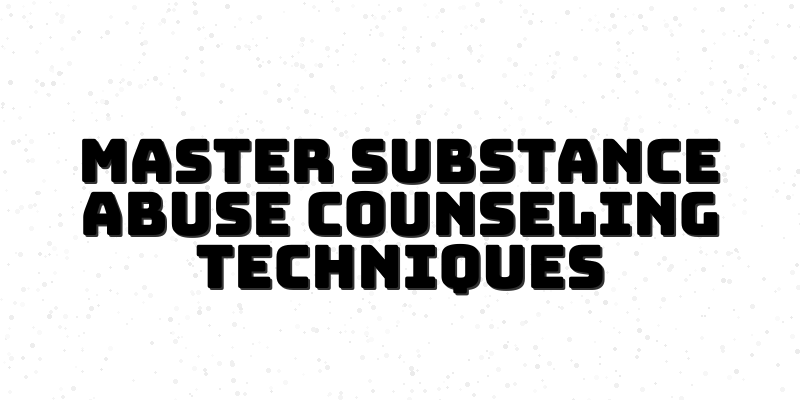Strategies for Effective Rural Substance Abuse Counseling: Empowering Communities
In the heart of rural America, substance abuse poses significant challenges to both individuals and communities. If you are a counselor or a professional in the health sector, understanding the unique dynamics of rural substance abuse counseling is crucial. This comprehensive guide provides insights and strategies for effectively navigating the complexities of substance abuse treatment in rural settings, ensuring that you can provide the support and resources that rural populations desperately need.
Understanding the Landscape of Rural Substance Abuse
Substance abuse in rural communities is often exacerbated by a myriad of factors including limited access to resources, stigma, and a lack of anonymity. According to recent statistics, rural areas report higher rates of certain types of substance abuse, particularly opioids and alcohol. This highlights the importance of understanding the local landscape, including prevalent substances, the demographics of users, and cultural attitudes toward treatment and recovery. By acknowledging these unique characteristics, counselors can tailor their approach to better serve their communities.
It's also essential to consider the socio-economic factors that play a pivotal role in substance abuse in rural areas. Higher unemployment rates, lack of educational opportunities, and limited access to healthcare services contribute to a cycle of dependency and misuse. Addressing these broader issues is critical in crafting effective counseling strategies.
Furthermore, rural communities often have a deep-seated mistrust of outsiders, including healthcare providers. Understanding these community dynamics is vital for counselors, allowing them to engage and build credibility in local spaces. Effectively addressing substance abuse challenges in rural settings begins with a nuanced understanding of these interconnected issues.
Cultural Competence: The Heart of Effective Counseling
Cultural competence is not just beneficial—it's essential for effective rural substance abuse counseling. Counselors must recognize the unique cultural values, beliefs, and practices of rural populations. This understanding facilitates stronger therapeutic relationships and increases the likelihood of client engagement and successful outcomes.
Cultural competence involves more than just knowledge; it requires a commitment to continuous learning and adaptation. Counselors should actively seek feedback from the community and engage in self-assessment to become aware of their biases and gaps in understanding. This might include participating in community events or collaborating with local leaders to gain insights into cultural norms and communication styles.
Moreover, incorporating indigenous healing practices and community resources into counseling can enhance the relevance of treatment plans for clients. For example, understanding local support systems, such as peer support groups or faith-based organizations, can provide additional pathways for recovery that resonate with rural clients.
Building Sustainable Community Partnerships
Establishing solid partnerships with local organizations is a key component of effective rural substance abuse counseling. Collaboration can lead to increased accessibility of resources, shared knowledge, and a stronger response to the substance abuse crisis. For counselors, this means actively seeking partnerships with schools, local businesses, healthcare providers, and community organizations.
Sustainable partnerships can also improve outreach efforts. Engaging the community in the design and delivery of services ensures that counseling programs are culturally relevant and accessible. It can be beneficial to conduct community needs assessments to identify potential partners and determine the most pressing needs related to substance abuse treatment.
Counselors should also foster relationships with local law enforcement and social services, as these partnerships can lead to more holistic community responses. By working together, these entities can create a safety net for individuals struggling with substance abuse, providing a comprehensive approach that promotes recovery and wellness.
Effective Outreach: Spreading the Word
Once you've developed a solid resource guide, the next step is effective outreach. Many individuals in rural areas may be unaware of available resources or reluctant to seek help due to stigma. Implementing strategic outreach efforts is essential to increase community awareness and engagement regarding substance abuse services.
Utilizing local media, such as newspapers, radio stations, and social media platforms, can widen your reach significantly. Consider hosting community forums or information sessions to educate the public about the signs of substance abuse and available resources for help. Making information accessible in formats that resonate with rural populations—like brochures or poster campaigns in schools, churches, and local businesses—can further increase awareness.
Engaging community leaders as advocates can also foster a supportive environment. When respected community figures promote substance abuse resources, their influence can notably shift public perceptions and encourage those in need to seek help.
Ensuring Longevity: Sustainability of Resources
Creating a resource guide is a significant step, but it's equally important to ensure its longevity and impact within the community. Sustainability can be achieved by regularly updating the guide with current information regarding treatment options, community services, and other resources.
Counselors should also establish feedback loops with the community. Soliciting input from users of the resource can help identify gaps and areas for improvement, ensuring that it continues to meet the evolving needs of rural populations. Creating a system for regular evaluation and renewal of resources will enhance the effectiveness of the guide over time.
Moreover, securing funding and support for ongoing programs will be crucial for sustainability. This might involve grant writing, community fundraising events, or partnerships with local businesses to ensure that substance abuse resources can continue to thrive and adapt to changing circumstances.






